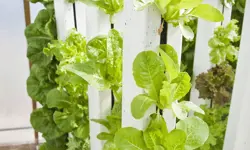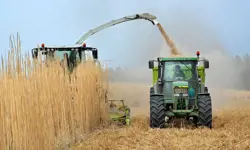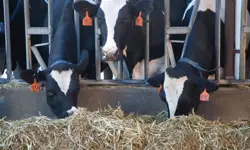
Q&A: Ben Crowther
Quick-fire facts
Age:
26
Qualifications:
Mechanical engineering design with study in industry, MEng.
Biggest engineering inspiration:
A local Bristol outfit called Open Bionics. I just love the way the company has been built and grown. It produces affordable, bespoke, lightweight, 3D-printed myoelectric prosthetic limbs.
Most-used technology:
The Slack instant messaging platform.
Three words that describe you:
Ambitious, passionate, persistent.
Why did you first become interested in engineering?
I have always been interested in creating things. From a young age I dabbled in everything from building go-karts to dismantling old electronic systems. My grandad taught me to turn the fake rivet caps for the bolt heads on his model steam locomotive when I was really young, which is probably my earliest engineering memory.
How did you get to where you are now?
For a while, I followed what would be considered a traditional engineering route. I studied the sciences and maths at school, and then for a degree in engineering design at the University of Bristol. This helped develop my technical skills, but more importantly – for me now – it had a strong focus on engineering systems and working within interdisciplinary teams.
Afterwards, I moved into mechanical and systems engineering at a large local company where I learned to apply my technical skills to real-world systems. In 2015, I used this experience and my technical skillset to start LettUs Grow with Jack Farmer and Charlie Guy, my co-founders who supported the biology and business fronts respectively.
What have been your biggest achievements to date?
I think my biggest achievement was taking the risk to leave a well-paid engineering job to start LettUs Grow. It certainly wasn’t the obvious choice for many people, but I’ve been grateful for the support of friends and family, which made it a lot easier. I don’t often stop and look back at how far we have come with the business, but in retrospect I am incredibly proud of what we have built. We have created a novel technology from the ground up that shows real promise in making a positive impact in the world. We have developed a market-leading product in an industry that is growing incredibly quickly, and have created a brilliant company and culture.
What gave you the idea for LettUs Grow?
I was reading around the subject of abundance and a more sustainable future when I was inspired by a section in a book by Peter Diamandis about the applications of vertical farming. I then met Jack at university and he was into aeroponics, considering different ways to curate a more sustainable food system more efficiently. We developed our aeroponic technology from there.
The world must increase food production by 70% to feed the 10 billion people that will be around by 2050. This needs to be achieved with 25% less farmland, degraded soils and in an ever more unstable climate. LettUs Grow aims to build the most efficient farms possible. Instead of growing plants in soil, we cover plant roots in a mist that is filled with nutrients, which reduces water and fertiliser usage by 95%. This increases the plants’ growth and uses less water than traditional farming and no pesticides. The technique can be used across the world and in different environments, from cities to deserts.
Instead of growing plants in soil, we cover plant roots in a mist that is filled with nutrients, which reduces water and fertiliser usage by 95%
What’s different about what LettUs Grow does?
Traditionally, aeroponics has been understood as a very high-output, high-efficiency method of growing. However, there are various issues surrounding the initial complexity of setting it up such as clogging problems with nozzles, which are traditionally used to generate an aerosol. There are other factors that mean it’s very difficult to grow the system to a sizeable scale. Our innovations are around removing these complexities. We’ve created an aeroponic system that is as simple as a hydroponic one but still has all of the advantages of aeroponics.
What does a typical day at work involve for you?
I don’t ever have one day the same as the next. LettUs Grow’s product and service offering is pretty broad so my role covers a mix of business, software, product development, research and development, and company strategy. One day I could be designing mechanical components and the next setting out the company’s five-year product development roadmap.
What would be your advice to young people looking to pursue a career in engineering?
Engineering is not all metal and hard hats! If you like making things and have a creative mindset, then it’s a great career pathway. We’ve created undergraduate and graduate internships for people studying at the University of Bristol and University of West of England. We help them by sharing our experiences, where ideas have failed as well as where we’ve succeeded. They bring in specialist skills that help us grow in scale.
Engineering is not all metal and hard hats! If you like making things and have a creative mindset, then it’s a great career pathway
What’s next for you?
I’m really excited to be able to continue my role at LettUs Grow and build on the foundations we have laid down over the past couple of years. I’m looking forward to completing our new research centre and deploying more and more systems for customers that can make a significant positive impact in the world, as well as learning the skills I will need to do this successfully.
***
This article has been adapted from "Q&A: Ben Crowther", which originally appeared in the print edition of Ingenia 82 (March 2020).
Keep up-to-date with Ingenia for free
SubscribeRelated content
Food & agriculture

Precision farming
Technologies such as global positioning systems and guided vehicles are being developed to create an era of precision farming. Professor Richard Godwin FREng explains how these initiatives can combine accuracy and control of field operations leading to increased efficiency and yields.

Farming straight up
Hydroponics, growing plants without soil in nutrient-enriched water, is a technique that has been used in some form for centuries. As the global population grows and food security is threatened, its faster growth and larger yields have become increasingly important.

What role for biofuels in low-carbon UK transport?
Biofuels have a role to play in meeting the UK’s climate change commitments. Sustainable Chemical Engineering Professor Adisa Azapagic FREng sets out why biofuels made from wastes and by-products in different sectors are particularly important to these efforts.

The automation of dairy farms
Robotic milking is not a new innovation, but the systems are increasingly being adopted by UK dairy farms. Science writer and broadcaster Geoff Watts learned from John Baines, Technical Director at Fullwood, how these systems are being engineered to do more than just milk cows.
Other content from Ingenia
Quick read

- Environment & sustainability
- Opinion
A young engineer’s perspective on the good, the bad and the ugly of COP27

- Environment & sustainability
- Issue 95
How do we pay for net zero technologies?
Quick read

- Transport
- Mechanical
- How I got here
Electrifying trains and STEMAZING outreach

- Civil & structural
- Environment & sustainability
- Issue 95